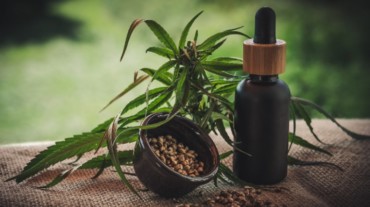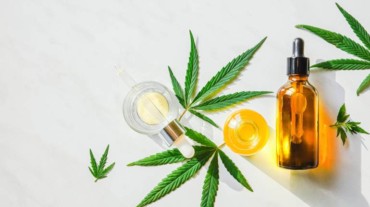
A lot has been said about how safe cannabis or marijuana is—with a lot of people claiming that it is a non-habit forming substance. Well, it seems the debate on whether or not marijuana can be addictive seems to be a coming to a hilt.
You see, a research claims that more than 50% of users who rely on medical marijuana to easy pain are likely to experience a cluster of withdrawal symptoms.
About 10% of the patients who took part in the study experienced worsening changes to their sleep, mood, mental state, energy, and appetite over the next two years as they continued to use cannabis.
When someone experiences more than a few such symptoms, it’s called cannabis withdrawal syndrome—and it can mean a higher risk of developing even more serious issues such as a cannabis use disorder.
Many of the study participants couldn’t recognize that these symptoms came not from their underlying condition, but from their brain and body’s reaction to the absence of substances in the cannabis products they’re smoking, vaping, eating, or applying to their skin, says the University of Michigan Addiction Center psychologist who led the study.
In the new research published in the journal Addiction, a team from the U-M Medical School and the VA Ann Arbor Healthcare System reported findings from detailed surveys across two years of 527 Michigan residents. All were participating in the state’s system to certify people with certain conditions for use of medical cannabis and had non-cancer-related pain.

“Some people report experiencing significant benefits from medical cannabis, but our findings suggest a real need to increase awareness about the signs of withdrawal symptoms developing to decrease the potential downsides of cannabis use, especially among those who experience severe or worsening symptoms over time,” says Lara Coughlin, Ph.D., the addiction psychologist who led the analysis.
The researchers asked the patients whether they had experienced any of 15 different symptoms—ranging from trouble sleeping and nausea to irritability and aggression—when they had gone a significant time without using cannabis.
The researchers used an analytic method to empirically group the patients into those who had no symptoms or mild symptoms at the start of the study, those who had moderate symptoms (meaning they experienced multiple withdrawal symptoms), and those who had severe withdrawal issues that included most or all of the symptoms.
They then looked at how things changed over time, surveying the patients one year and two years after their first survey.
Select Topics of your interest and let us customize your feed.
PERSONALISE NOWAt baseline, 41% of the study participants fell into the mild symptoms group, 34% were in the moderate group and 25% were classed as severe.
Many people who turn to medical cannabis for pain do so because other pain relievers haven’t worked, says Coughlin, an assistant professor in the Department of Psychiatry who sees patients as part of U-M Addiction Treatment Services. They may also want to avoid long-term use of opioid pain medications because they pose a risk of misuse and other adverse health consequences.
The perception of cannabis as “harmless” is not correct, she says. It contains substances called cannabinoids that act on the brain—and that over time can lead the brain to react when those substances are absent.
In addition to a general craving to use cannabis, withdrawal symptoms can include anxiety, sleep difficulties, decreased appetite, restlessness, depressed mood, aggression, irritability, nausea, sweating, headache, stomach pain, strange dreams, increased anger, and shakiness.

Previous research has shown that the more symptoms and greater severity of symptoms a person has, the less likely they are to be able to reduce their use of cannabis, quit using it, or stay away from it once they quit.
They may mistakenly think that the symptoms happen because of their underlying medical conditions, and may even increase the amount or frequency of their cannabis use to try to counteract the effect – leading to a cycle of increasing use and increasing withdrawal.
Feeling the urge to use cannabis after a period without use, such as soon after waking up, can be a sign of withdrawal syndrome, she notes. So can the inability to cut back on use without experiencing craving or other symptoms of withdrawal.
Coughlin says people who decide to use a cannabis product for a medical purpose should discuss the amount, route of administration, frequency, and type of cannabis product with their regular health provider. They should also familiarize themselves with the symptoms of cannabis withdrawal and tell their provider if they’re experiencing them.
Because there is no medically accepted standard for medical cannabis dosing for different conditions, patients are often faced with a wide array of cannabis products that vary in strength and route of administration. Some products could pose more risk for the development of withdrawal symptoms than others, Coughlin says.
For example, people who smoked cannabis tended to have more severe withdrawal symptoms than others, while people who vaped cannabis reported symptoms that tended to stay the same or get worse but generally did not improve, over time.